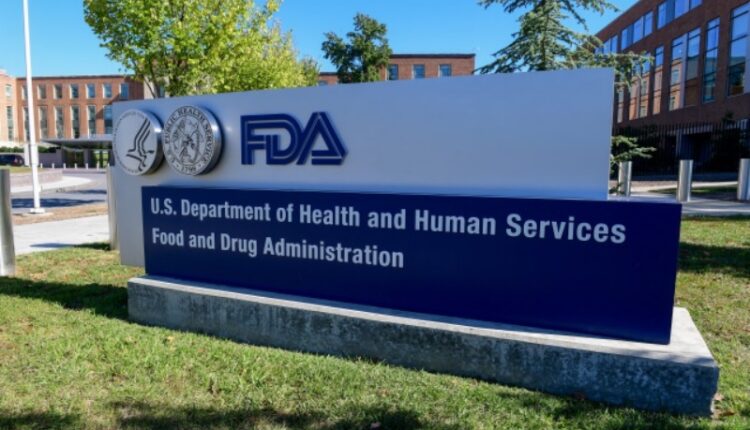
Revive Therapeutics Data Access Plan Approved By The FDA; Partial Unblinded Data In Company Hands
Revive Therapeutics Ltd. (CNSX: RVV) (OTCMKTS: RVVTF) moved closer towards potential endpoint change in their Phase 3 clinical trial to evaluate the safety and efficacy of Bucillamine to treat COVID-19. The FDA officially approved the company’s Data Access Plan (DAP) to allow for the unblinding of the pre-dose selection data to a designated company statistician. This marks the final regulatory hurdle between Revive reviewing data and determining whether to pivot to revised trail endpoints.
The news was announced after market open on Friday, in what has become a recent deviation from customary pre-market morning releases. In it, Revive Therapeutics disclosed that with DAP approval in-hand, it will now proceed to unblind the pre-dose selection data to potentially support the amended study protocol with the new primary efficacy endpoints. This will involve reviewing data from the first 210 patients and determining whether targeting symptom reduction gives the trial the best chance to succeed.
With the rise of the virulent, yet less dangerous Omicron and BA.2 variants, the original mission to reduce death and hospitalization has evolved. However, there remains an important need for an oral COVID therapeutic that can provide symptom relief and potentially mitigate another wave of disruptive economic shutdowns.
As BNN Bloomberg reported on June 24, COVID infection rates are rising again in the UK and across much of Europe—driven by newer versions of the omicron variant—amid concerns that another wave will disrupt businesses and add to pressure on health systems. New outbreaks elsewhere are causing growing absences from workplaces and worsening labor shortages. In Germany, Deutsche Lufthansa AG is canceling 3,100 flights, adding to Europe’s travel chaos as the summer vacation period gets under way.
Reports of worldwide COVID case outbreaks have been common throughout 2022. For example, new cases in South Korea rose from under 5000 per day in early January to a surge of 621,328 cases per day, as reported by The Guardian on March 17. It also brought along with it record fatalities, with 429 people succumbing to the illness on that day.
Broadly speaking, the scientific community and state leaders expect more such outbreaks in the foreseeable future—including U.S. president Joe Biden. This past week, president Biden spoke at the White House about the need for more funding to fight Covid-19, stating that a “second pandemic” was coming.
Revive Therapeutics COVID Trial Nears An Inflection Point
According to the Merriam-Webster dictionary, an inflection point is defined as “a moment when significant change occurs or may occur.” This simple definition applies aptly to the current dynamics of Revive Therapeutics COVID trial story.
With unblinded data now in-possession, Revive is positioned to make an informative decision on the applicability of potential endpoint change. Should it move forward and decide that the data justifies this conclusion, and pending FDA review and approval of such changes, the trial’s Data Safety and Monitoring Board could meet shortly thereafter to unblind the study entirely, paving the way for potential Emergency Use Authorization submission.
And given the way leading oral COVID therapeutic Paxlovid (Pfizer) is performing, it’s a reasonable assumption that the FDA is keen on bringing new drugs into the marketplace.
The ineffectiveness of Paxlovid recently came into focus when Pfizer halted enrollment into the EPIC-SR trial evaluating Paxlovid in standard-risk patients due to lack of efficacy. The phase 2/3 trial failed to prove that the antiviral treatment reduced the relative risk of contracting COVID-19 and associated symptoms. This came in addition to a May 24 warning issued by the Center for Disease Control and Prevention (CDC) which advised that a rebound in COVID symptoms can occur after taking Paxlovid, approved for symptoms reduction in the high-risk population.
With questions regarding the efficacy and long-term viability of antiviral medications in-focus, Bucillamine may have a legitimate shot at becoming a frontline therapeutic option. With a differentiated mode-of-action reliant on squelching oxidative stress and inflammation (along with some purported antiviral and anti-spike protein binding characteristics), Bucillamine is treating symptoms of COVID as opposed to trying to eradicate a virus that is constantly mutating.
Regardless, the quality of trial data will determine Bucillamine’s success or failure in the current Phase 3 study. By allowing the company to view partial unblinded data before making an endpoint decision, we can only surmise that the FDA is giving Revive the best possible chance to succeed. For the first time in almost two years since the trial was initiated, a potential endgame is close at hand.



